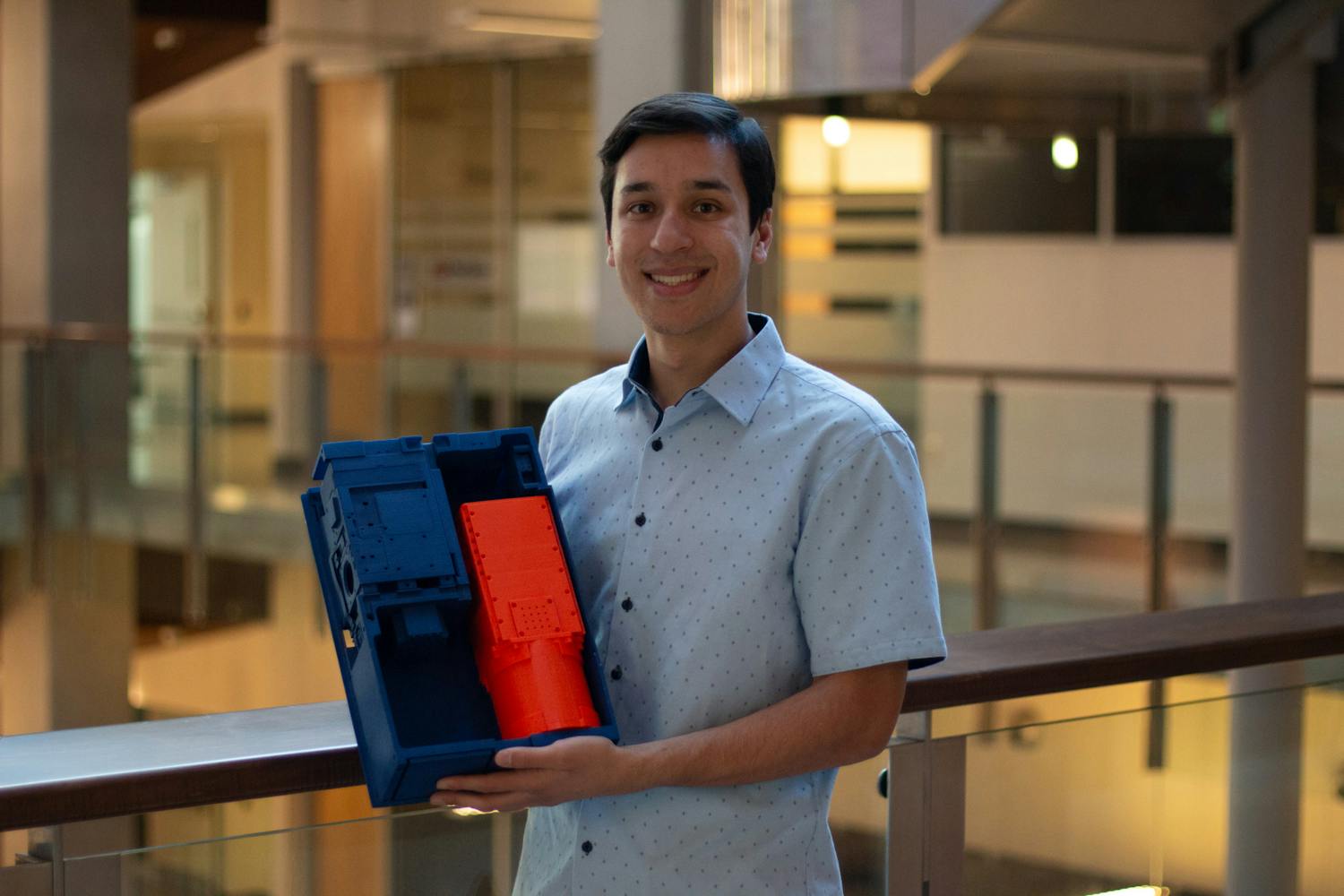Our campus is littered with religious groups that do not talk to each other.
In the absence of a meaningful dialogue, ignorance and horrific statements reign.
Sitting in the courtyard of the honors college, a friend was stunned to overhear another student seethe over "true Christians."
"I wouldn't even talk to a 'true Christian.' I don't like being around stupid people. I'm like, 'Don't you know I want to shove explosives in your mouth and [expletive] blow your head off?'"
My friend, a committed and intelligent Christian, was shaken.
Religions will interact on our campus, and if interaction isn't constructive, it will be damaging.
Of course, hate speech is not limited to Christians. Experiences like my friend's, coupled with the sporadic mall preachers and the vandalism of the mosque north of campus three years ago, suggest that our campus could use some more deliberate religious conversation.
Interreligious dialogue is a vital necessity for every thinking person. America, and our campus in particular, is plagued by apathy. The solution for this is open exchanges about things that matter.
While some people might condemn interreligious dialogue as capitulating to a postmodern "everything is true" philosophy, the opposite is the case: dialogue sharpens religion.
Understanding what others believe - and hearing it from their own lips - helps us understand what we believe. Advancing from childhood tradition to adult religion or nonreligion requires, in our modern age, consciously choosing our path. This requires conversation.
Thankfully, a smattering of good interreligious dialogue already exists.
Some instances are informal. The coffee-fueled discussions that break out in freshman dorms, while often uneducated and perhaps overly caffeinated, are at least honest.
The evangelical group, Campus Crusade for Christ , annually erects a wall next to the fountain outside the Memorial Union, eliciting comments from passers-by on religious questions.
And for all the vitriol spouted by the mall preachers - and returned by their fans - the outskirts of the crowd are often milieus for candid and searching spiritual conversations.
Other instances are more formal. The undergraduate Religious Studies Society puts on discussions of topics ranging from women in Islam to a history of Wicca.
The Department of Religious Studies hosts popular scholars to speak about current issues.
Most promising may be the Intergroup Relations Center, which leads interactive interfaith discussions. Tonight at 6:30, the Islamic Community Center of Tempe will host an open IRC dialogue on the topic, "Is any truth worth dying for?"
The center is located at 131 E. 6th St.
The leaders of this group are not blase relativists but people who wrestle with religious, ethical and cultural issues. Many of those speaking will be committed members of one or another religious tradition.
The goal is not "tolerance," but understanding and action.
People of any and all backgrounds are invited to attend.
Diversity, that buzzword of our liberal society, is meaningless without dialogue.
What is the use of having students of a hundred different religions gathered on our campus if they don't interact?
Given the state of our University's intercultural conversation, it is deceitful to call ASU a "diverse" campus, and hollow to celebrate it as such.
The public university was founded on the hope of the intellectual marketplace. A public university, open to students of every background, was designed to be an environment in which ideologies and cultures could converse openly. That dream is close to being dead.
We must call for revival on this campus, not just of one religion or another, but for honest conversation between religions and cultures. Nothing less could resurrect the dead vision.
It will not be enough to nod politely, "Yes, of course we need more dialogue on campus."
This is a task for liberals and fundamentalists, for atheists and believers, for Buddhists and Christians and Hindus and Jews and Muslims and pagans.
We each must participate in it, in any way we can.
Brandon Hendrickson is a graduate of history and religious studies. He once attempted to bring campus Christian and atheist groups into conversation. (It went about as well as could be expected.) Fire at will at



